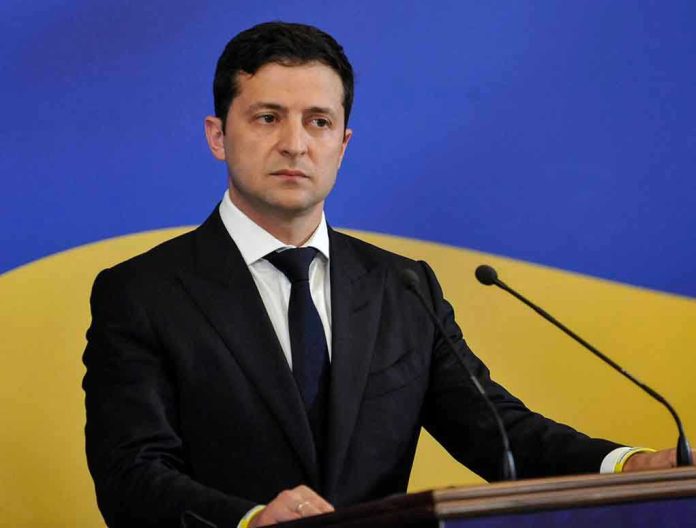
A high-stakes meeting between President Trump and President Zelensky could redefine the balance of power in Eastern Europe.
Story Highlights
- Zelensky visits Washington to discuss Tomahawk missiles with Trump.
- Ukraine seeks advanced weaponry to counter Russian aggression.
- Russia warns of escalation if Tomahawks are provided to Ukraine.
- The decision could impact U.S.-Russia relations and European security.
Zelensky’s Strategic Visit to Washington
President Volodymyr Zelensky is traveling to Washington for crucial discussions with President Donald Trump regarding Ukraine’s request for U.S.-made Tomahawk missiles. This meeting, scheduled for October 14, 2025, comes at a pivotal moment in the Ukraine-Russia conflict, as Ukraine seeks to bolster its military capabilities significantly. Zelensky’s visit underscores the urgency felt by Ukraine in navigating the geopolitical tensions exacerbated by Russian aggression.
The Tomahawk missiles are highly sophisticated long-range weapons that would greatly enhance Ukraine’s strike capabilities. However, the potential provision of such advanced weaponry has raised concerns about escalating the conflict further. Russia has already issued warnings, indicating that the delivery of Tomahawks could provoke a stronger military response, complicating the already tense situation in the region.
Implications for U.S. Foreign Policy
The Trump administration’s decision on whether to supply Ukraine with these missiles will have far-reaching implications for U.S. foreign policy and its relationship with Russia. Trump’s stated objectives include a quick end to the conflict, but the provision of Tomahawks might signal a deeper commitment to supporting Ukraine’s defense efforts. Such a move would align with conservative values of maintaining strong national defense and supporting allies against authoritarian regimes.
On the other hand, refraining from supplying these weapons might be seen as an attempt to de-escalate tensions with Russia. This decision could lead to criticism from those who believe that firm support for Ukraine is necessary to uphold democratic values and deter further Russian aggression.
Potential Consequences for European Security
The outcome of the Trump-Zelensky meeting is being closely watched by European allies, particularly those in NATO. The provision of Tomahawk missiles could strengthen trans-Atlantic unity in supporting Ukraine, but it also holds the potential to create divisions if European partners view the move as too provocative. The decision will set a precedent for future U.S. commitments to military aid in the region.
Professor Scott Lucas from University College Dublin emphasizes the interconnected nature of military capabilities and diplomatic strategies. He notes that the meeting could either reshape the trajectory of the war in Ukraine or spark new tensions across Europe. The decision Trump faces is complex, balancing support for a democratic ally with the risks of escalating a conflict involving a nuclear-armed adversary.



